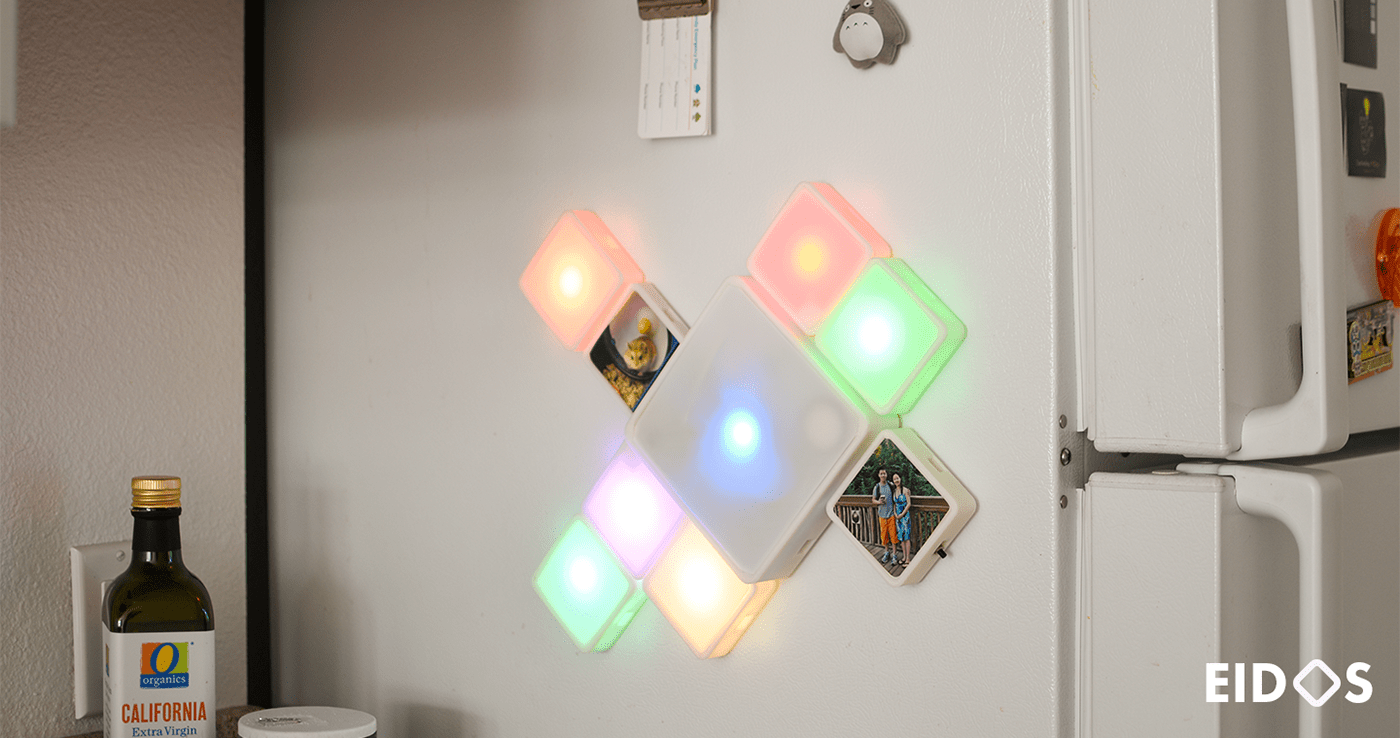
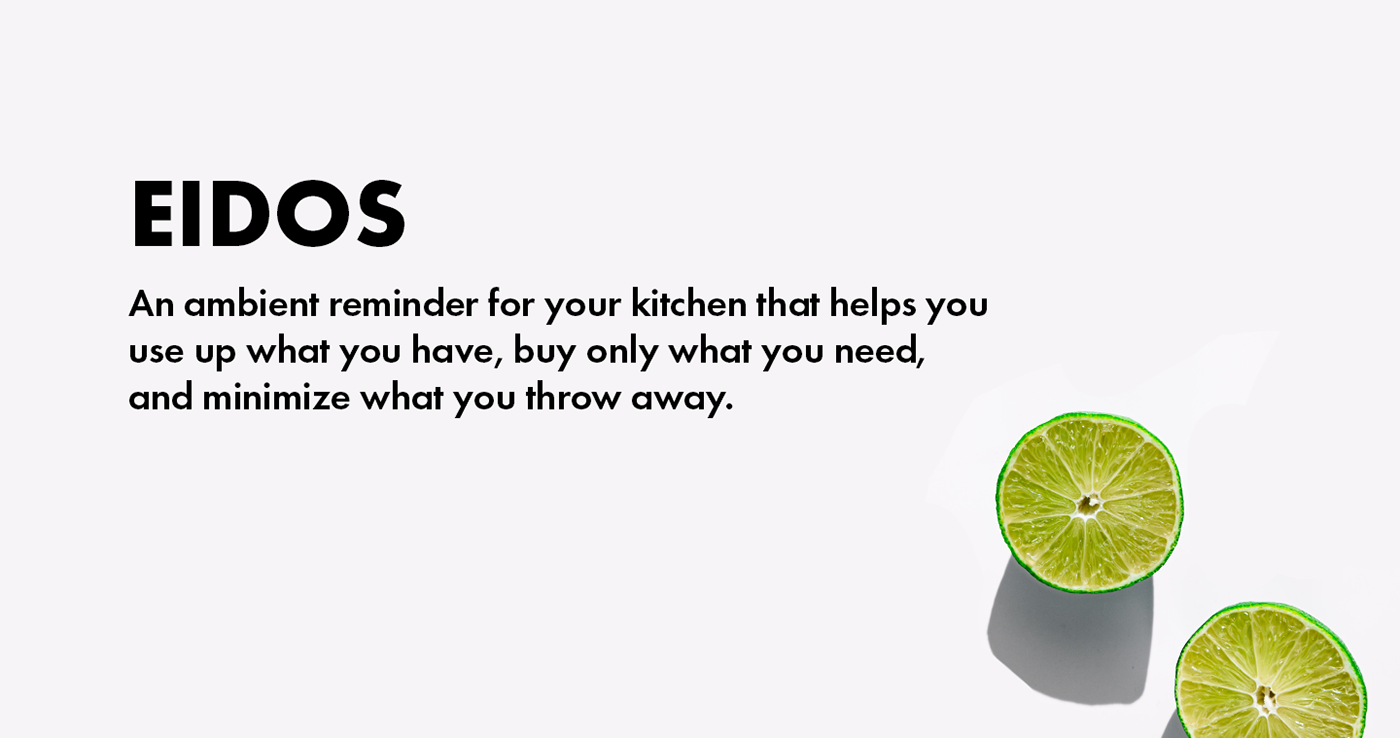

Motivation
According to the United Nations, by the year 2050 global population will reach 9.8 billion resulting in a 60% greater demand for food. Left unchecked, an estimated 840 million people will go hungry.

Of the 17 goals that the United Nations has established, solving hunger is the second highest goal, behind only ending poverty.
Interviews and Research
We spoke to restaurants and grocery stores and learned about the existing programs businesses are implementing for compost and donating unused foods.
Our research found mostly solutions for dealing with waste after it had already been produced.
For example, the dining halls at UC Berkeley donates leftovers to the UC Berkeley food pantry which repackages them into new meals for pickup.

Since we found many existing solutions for reusing food waste, we chose to focus on source reduction.
Furthermore, 60% of all food waste happens in residential settings, so we narrowed the scope further to home kitchens.

Process
We explored several different directions including a board game, interventions inside the fridge such as spot light, and an interactive waste bin.



We began by ideating on several concepts relating to food waste before selecting these three avenues to pursue.

We then simulated what interactions with each prototype would feel like.

We also interviewed others about their thoughts on each prototype.

Once we gained feedback we were able to narrow our selection and pursue a single direction for further development.
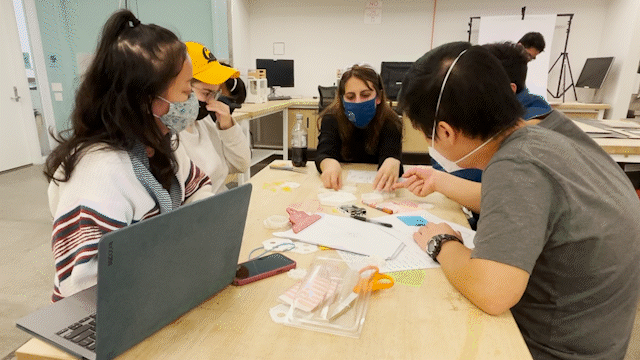

Form exploration
We explored several modular shapes before finalizing on square tiles. We found that edges of certain shapes either informed or confused users about how to attach modules to each other. The final design has one edge with a portion that sticks out for connecting to other tiles. All other edges have sockets that serve as attachment points.

Modular design
The modular design allows home owners to customize the shape. They can purchase as few or as many tiles as needed.



Final design
Establishing a physical presence with modular light tiles, EIDOS provides gentle reminders about foods that are expiring soon.
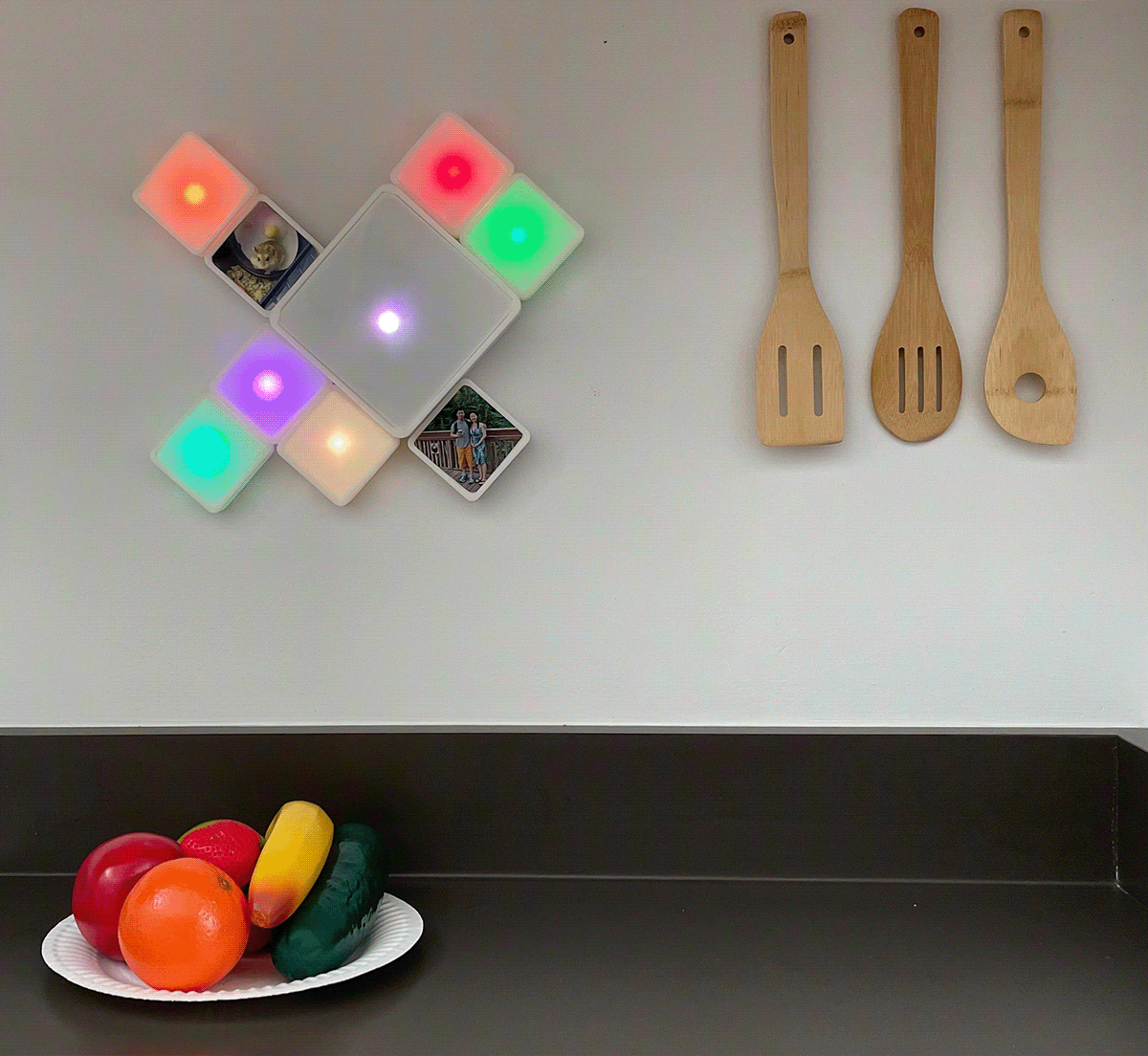
How it works
Our design helps individuals reduce residential food waste by providing gentle ambient reminders about food that will expire or spoil soon. A companion app scans receipts to track and inform smarter grocery shopping lists and recipes.
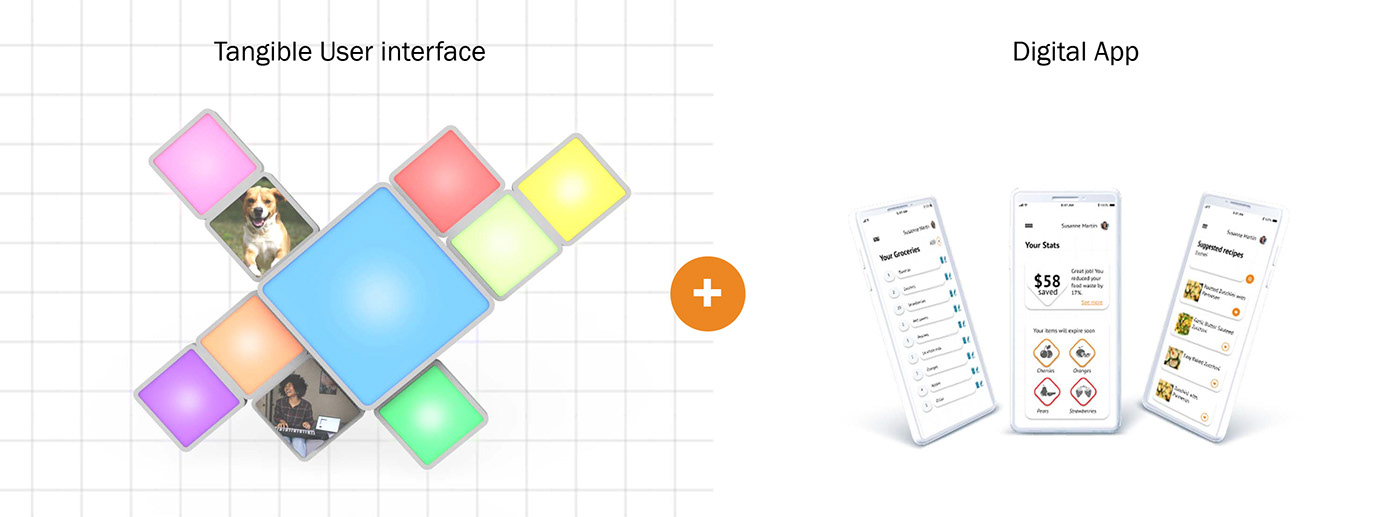
A companion app enables users to customize their food saving preferences. The app is also used to scan receipts and enter optional specific details about fruits and vegetables, such as how ripe they were at the time of purchase.
When EIDOS predicts a food is expiring soon, the app provides suggested recipes. Suggested recipes also integrate with grocery shopping lists, helping you buy only what you need.
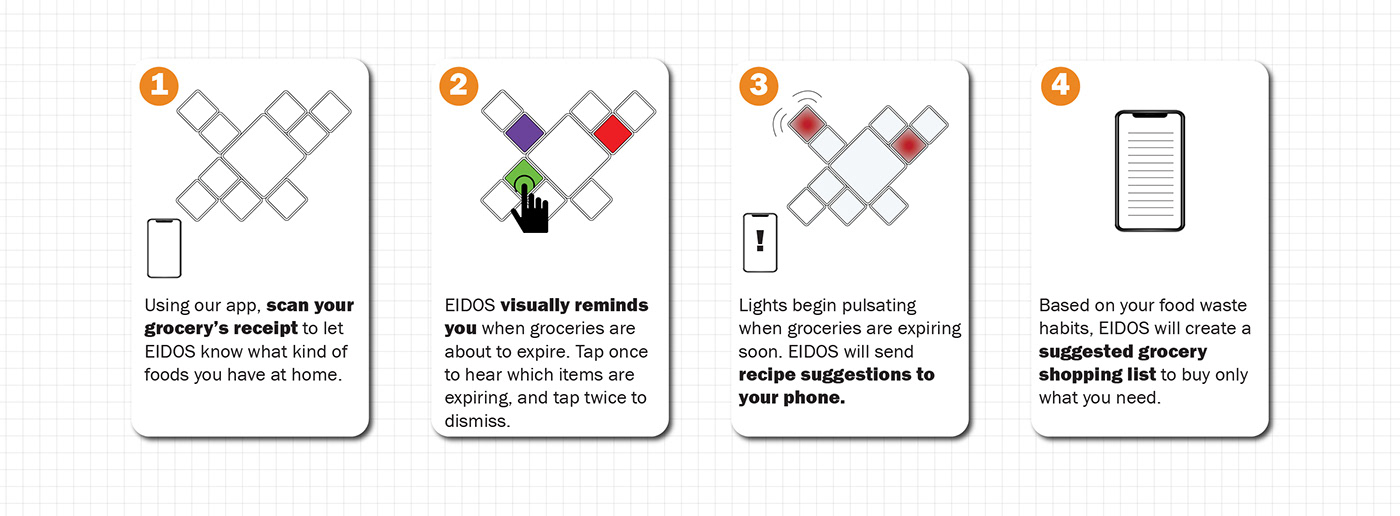




Digital experience

A companion app facilitates receipt scanning, suggested recipes and smart grocery shopping lists. During the setup process, users are also asked what metrics they value the most, such as financial cost or environmental impact (pounds of CO2 saved).

Narrative video









